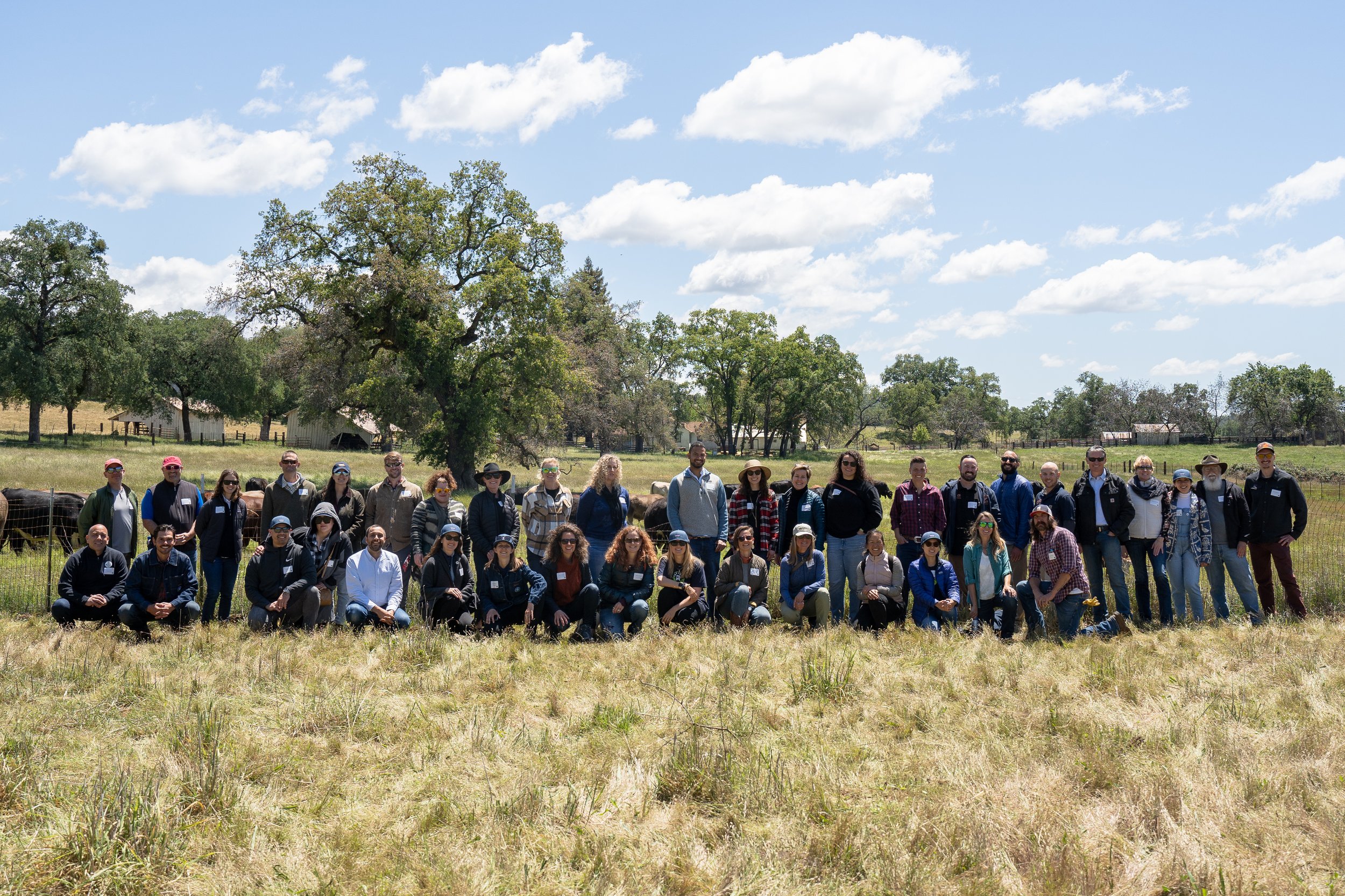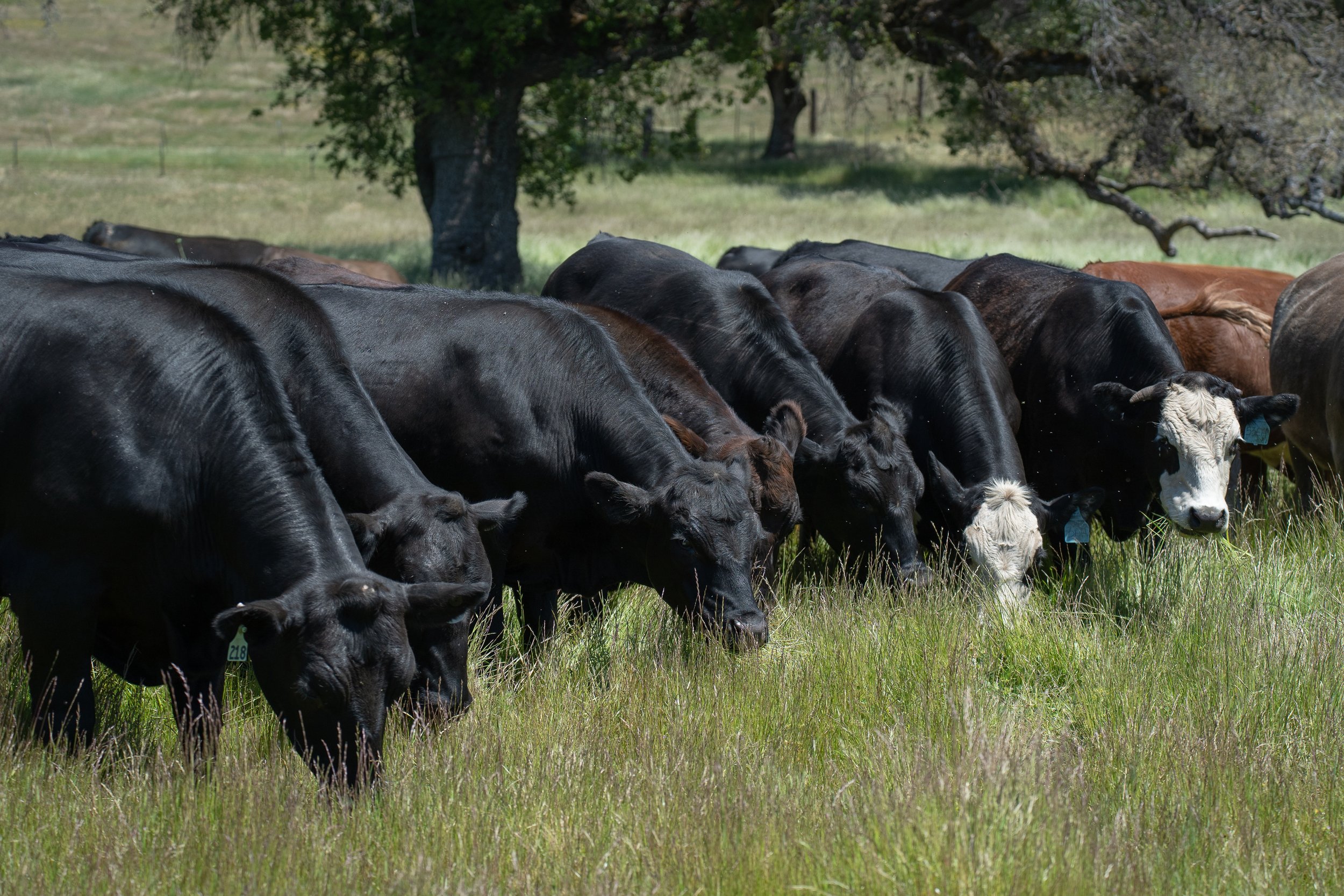
The number of institutions adopting regenerative sourcing practices through Beef2Institution has increased by 15% since 2022
In 2024, the Beef2Institution initiative made significant strides in bringing locally sourced, regenerative, grass-fed beef to schools and hospitals across California. This initiative began in 2018 as a collaborative effort with Healthcare Without Harm, Community Alliance With Family Farmers (CAFF), and TomKat Ranch Educational Foundation, and partnering ranches (Stemple Creek Ranch, Richards Regenerative, and Morris Grassfed). We expanded in 2024 to include Roots of Change, Wolfe's Neck, and Cream Co.
Number of institutions (schools, hospitals) adopting regenerative sourcing practices through Beef2Institution since inception
40 Schools
Six Hospitals
Map source: TomKat Ranch 2025 Impact Report
Santa Clara USD
Background:
The Santa Clara USD includes 31 schools with students from preschool through postsecondary education. With a fairly large scale, the district is committed simply to providing students with “good food that tastes good and that’s healthy for them”. In addition to the Beef2Institution initiative, the district also pursues local fish and produce as much as possible.
Barriers & Challenges:
One of the largest challenges in driving for regenerative products has been making the cost work; the control over this expense is limited, and results in only a few dollars for each lunch. The supply chain has also not always been oriented in a way that supports these goals, making it difficult to connect with ranchers and producers.
Making it Work:
Partnering with distributors like Cream Co. has been critical in making regenerative beef accessible for Santa Clara USD. Mitigating the cost of more sustainable meat with lower-cost options in produce has also allowed for more flexibility to incorporate regenerative beef. Prioritizing local food and produce students enjoy remains essential; balancing these needs with planetary needs has helped Beef2Institution to succeed.
UCSD Health
Background:
UCSD Health has recently opened a third site, offering both meals for patients and guests and resale, serving over one million in the last year. They have been able to transition toward a more sustainable and healthy model in their meals through small incremental changes to more local and value-aligned items whenever possible.
Barriers & Challenges:
Sourcing has been a lingering challenge for this institution, in terms of finding products that meet the requirements and interests of a healthcare facility at this scale. Pricing is also a consideration in all instances– navigating improvements to the meals and food options available without overloading their existing systems.
Making it Work:
By making small, incremental changes, UCSD Health System has been able to gradually adjust and transition toward more sustainable food options. Intermediate distributors like Cream Co., alongside systemwide sustainability and procurement goals, help to make regenerative products a viable option as well. Communication and collaboration, both with campus sites and with other healthcare systems have also broken down some of the barriers presented to institutions.
Vacaville USD
Background:
Vacaville USD has been a major driver for the Beef2Institution initiative for more than 8 years, acting to help bring in other school districts. They emphasize the acquisition of animal protein from within California and are largely motivated by the idea that knowing the benefits of regenerative meat products, there is an impetus to make them a part of the menu.
Barriers & Challenges:
It is understood by Vacaville USD that better food costs more money. A lack of diversity in producers has also been a source of concern in the past. Ensuring that the food they serve is enjoyed by students in addition to being sustainable and healthy is also another consideration.
Making it Work:
An early partnership with Cream Co., specifically in developing a precooked burger patty, was a major way to make regenerative products more viable, not just for Vacaville USD, but also for other school districts. The availability of high-quality, sustainable meat products in California, and the support of policies like the Universal Meal Program, as well as the development of careful spending plans also facilitate the ability of Vacaville USD to serve students what they view as the best food possible.
Wester Placer USD
Background:
Western Placer USD is a large and growing district that places a strong emphasis on using its spending power to support local procurement within its food services. They also strive to build relationships with other institutions, connecting with other districts and Cream Co. as a distributor.
Barriers & Challenges:
The primary obstacle confronted by Western Placer USD in procuring regenerative meat products is managing logistics. This includes the challenge of shipping costs, distribution of products, and the overall challenge of making the cost of regenerative products viable for a large institution.
Making it Work:
Companies like Cream Co. have been vital in making the Beef2Insitution initiative viable for Vacaville USD. Local partners have also been extremely valuable in supporting the drive for regenerative products. Funding from the state also creates an incentive for seeking out options that are healthier and more sustainable.
A willingness to participate and drive to seek out information and opportunities has helped Western Placer USD as a growing consumer of local, regenerative beef.






